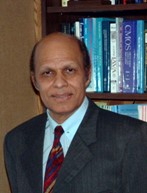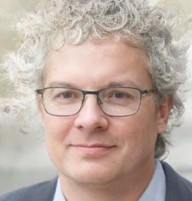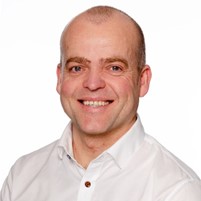To GPT or Not to GPT: This is NOT the question
The AI Field took a transformational turn with the creation of powerful Generative Artificial Intelligence (AI) models. This disruptive technology has captured the attention allover the world at a very fast rate. For instance, ChatGPT reached 100 million users in two months. It is the fastest growing app. ever, with an impact of $7.9 trillion.
While traditional AI focus on detecting patterns, making decisions, and classifying data, Generative AI can produce various types of content; text, image, audio, video, and synthetic data with high quality in few seconds. Images and Videos have benefited the most. Generative AI can be applied in various applications to generate different kind of content, examples are:
- Smart design and manufacturing, e.g. chip design
- Marketing, creating demos (including videos and testimony)
- Creating chatbots and meaningful responses for customer services
- Creating music in any style and time period
- Creative writing; movies, novels, and plays
- Designing more entertaining games beyond what we know
- Improve security at all levels
- Developing new drugs in a cost-effective way
- Finance management
- Legal aspects management
- Creating accurate avatar of people
- Generating codes and software systems
But, current generative AI have some limitations and problems, such as:
- Providing inaccurate and misleading information. The source of information is not known most of the time.
- Facilitating plagiarism which can complicate creativity and education
- Making fake news that have negative impact politically and socially
- Taking business to the wrong direction; planning, marketing, and finance
- Producing information that biased and prejudiced
Generative AI is relatively new, it has stimulated and generated many questions among regular citizens and experts/developers as well. This is just the beginning, what is coming may be beyond imagination. Generative AI will impact all our life. In some cases, the applications may be clearly visible, but most of the times, they will be working in the background.
Our distinguished panelist will address some of these questions. Audience are strongly encouraged to interact with the panel through questions and comments.
Organizers and Moderators

Dr. Eesa Mohammed Bastaki
President, University of Dubai, UAE

Dr. Magdy Bayoumi
University of Louisiana at Lafayette, USA
Panelists

Alexey Myakov
Intel Chief AI Engineering GM, R&D

Gunnar Hansen
Business Development Director, Haltian
Bio of the Organizers and Panelists
Eesa Mohammed Al Bastaki, led his efforts to create a vital system in the telecommunications and information technology industry in the UAE by encouraging entrepreneurship, financing scientific projects, supporting scholarships, and implementing communications and information technology initiatives. He received his PhD (1989) from the University of California, Irvine, USA. Dr. Al Bastaki is the president of the University of Dubai, and has held multiple academic, directing and managing roles throughout his career. He is the Honorary Chair of the IEEE UAE Section, has participated in hundreds of events, has held various prestigious roles, and was acknowledged with several awards and recognitions including winning the prestigious Emirates Excellence Award in Sciences, Literature and Arts in 2009, which is the highest award in the UAE.
Gunnar Hansen is the founder of Real-Time Healthcare Solutions, a digital twin, AI, and iot hub focusing on the wellbeing of the healthcare workers. The solution is growing fast in several countries and the development is done in close cooperation with the customers.
Gunnar Hansen has over 20 years of experience working in and for the healthcare sector with a passion to make life easier for the healthcare workers and by that improved care.
Alexey Myakov is a computer vision (CV) expert and a General Manager (GM) of the Intel’s newly created AI software R&D center in Dubai, UAE. He joined Intel in 2016 through acquisition of the CV company Itseez (the main developer of de facto standard in computer vision – OpenCV) where he was a co-founder and a CEO. At Intel, Alexey focuses on democratization of deep learning (DL), AI, and computer vision and leads business development and customer enablement for OpenVINO product. A physicist and biomedical engineer by training he spent his early years as a scientist focusing on early cancer diagnostics and contributed to the development of OCT (Optical Coherence Tomography) modality.
Magdy A. Bayoumi is the Department Head of W. H. Hall Department of Electrical & Computer Engineering. He is the W.H. Hall Endowed Chair in Computer Engineering. He was the Director of the Center for Advanced Computer Studies (CACS) and the Department Head of Computer Science Department. He was the Loflin Eminent Scholar Endowed Chair in Computer Science. He was,also, the Admiston Professor in Computer Science and Lamson Professor in Computer Engineering, all at the University of Louisiana at Lafayette, where he has been a faculty member since 1985. He received B.Sc. and M.Sc. degrees in Electrical Engineering from Cairo University, Egypt; M.Sc. degree in Computer Engineering from Washington University, St. Louis; and Ph.D. degree in Electrical Engineering from the University of Windsor, Canada.
Dr. Bayoumi has graduated more than 100 PHD and 150 MSC students, they have been employed all over the world. Intel has hired around 100 of his students. He authored/co-authored more than 600 research papers and more than 10 books. He was the guest/co-guest editor of more than 10 special journal issues, the latest was on Machine-to-Machine Interface. He was an associate editor of many IEEE transactions, Springer, and Elsevier journals.
Bayoumi is an IEEE Fellow. He has served in many capacities in the IEEE Computer, Signal Processing, and Circuits & Systems (CAS) societies, the most recent are: the vice president of Technical Activities of IEEE RFID council and he was on the IEEE RFID Distinguished Lecture Program (DLP). He was, also, on the the DLP program of IEEE Computer and CAS societies. He is a member of IEEE IoT Activity Board and he is on the steering committee of IEEE IoT journal. Bayoumi has received many awards, among them; the IEEE CAS Education award and the IEEE CAS Distinguished Service award. He was on the IEEE Fellow Selection Committee. Bayoumi has been an ABET evaluator and he was an ABET commissioner and team chair. He has given numerous keynote/invited lectures and talks nationally and internationally. Bayoumi was the general chair of more than 25 conferences (including ISCAS 2007 and ICIP 2009), the latest are: IEEE ICECS 2021, IEEE WFIoT 2021, IEEE ICECS 2021 in Dubai, IEEE WFIoT 2020, IEEE MWSCAS 2018 in Windsor, IEEE ICASSP 2017 in New Orleans, and IEEE ICECS 2015 in Cairo.
Bayoumi was the chair of an international delegation to China, sponsored by People-to-People Ambassador, 2000. He received the French Government Fellowship, University of Paris Orsay, 2003-2005 and 2009. He was a Visiting Professor at King Saud University. He was a United Nation visiting scholar. He has been an advisor to many EE/CMPS departments in several countries.
Bayoumi was on the State of Louisiana Comprehensive Energy Policy Committee. He was the vice president of Acadiana Technology Council. He was on the Chamber of Commerce Tourism and Education committees. He was a member of several delegations representing Lafayette to international cities, e.g. Quebec City – Canada, Vasa – Finland, Paris – France. He is on the Le Centre International Board (Lafayette City -Parish government). He was the general chair of SEASME (an organization of French Speaking cities) conference in Lafayette. He is a member of Lafayette Leadership Institute; he was a founding member of its executive committee. He was a column editor for Lafayette Newspaper, the Daily Advertiser. Bayoumi has been featured in several international media, examples are: Aljazera and Sky News.
